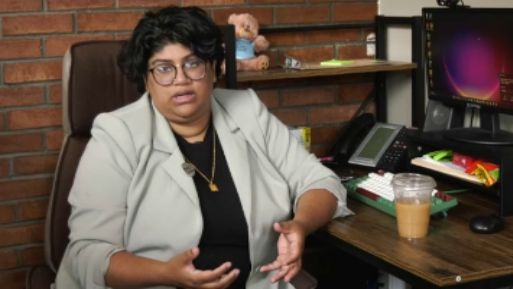Just like issues are not always black and white, people do not always see themselves as men or women. According to a recent survey, roughly 1.6% of American adults now identify as transgender or nonbinary.
For Nitasha George, growing up was all about living up to expectations surrounding gender and sexuality.
“There weren’t really other people who were queer, who were non-binary, that I could reach out to and ask how the heck do I do this,” they recalled. “How do I exist in a world that wasn’t made for me?”
It’s took George many years to realize that fitting into the expectations of society was impossible. George's preferred pronouns are they or them.
“When you’re talking about me, I don’t want to be referred to in a way that highlights womanhood, that highlights manhood,” they said. “I just want to be Nitasha.”
On this International Binary People’s Day, they’re encouraging people who are unfamiliar with non-binary people to learn and debunk some of the common misconceptions.
“Recognizing that even within this title of non-binary, there are so many ways for that to be expressed that look nothing like me or sound nothing like me,” George explained.
There is also a call to elected leaders to develop a better understanding of non-binary people and look beyond the statistics.
“Asking people what do you actually need,” George said. “Within my community, I know one of the biggest issues that my community faces is housing.”
George’s experiences in life has evolved into advocacy work and has drawn them to In Our Own Voices, an Albany-based organization focused on protecting and empowering LGBTQ+ people of color.
George is the director of anti-violence services there.
“I want to make a difference,” they said. “I want to be the person I didn’t have in the world.”
And if you know someone who is non-binary, George shares this piece of advice for their loved ones.
“The way you can show me you love me is by loving me when I am not there,” George said. “Which means using my pronouns when I am not in the room. Educating yourself about being non-binary beyond the pronouns because there is so much more going on here than just my pronouns."





